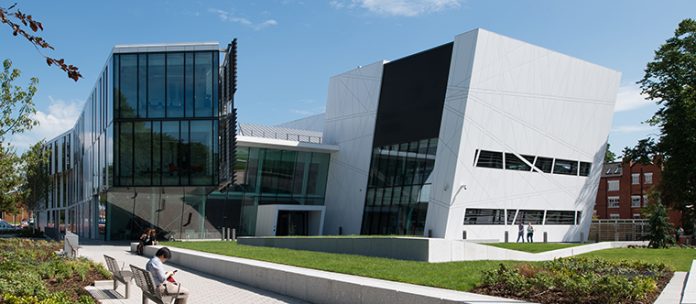A major cancer charity has announced £8.5m for Manchester to provide the next generation of doctors and scientists to bring new and better cancer treatments to patients faster.
Cancer Research UK is to award the funding over the next five years to train early-career clinician scientists – doctors who also carry out medical research – as part of its Clinical Academic Training Programme.
The Clinical Academic Training Programme will invest £58.7m at nine research centres including the Cancer Research UK Manchester Centre in partnership with The Christie NHS Foundation Trust, The University of Manchester and The University of Leeds.
Clinician scientists play an essential role in translating cancer research, helping to bridge the gap between scientific research carried out in laboratories and clinical research involving patients.
Working across both research settings, their contributions to new knowledge and its translation to clinical practice are critical for cancer research.
Michelle Mitchell, Cancer Research UK’s Chief Executive, said:
“Clinician scientists have a very important role to play by bringing their knowledge and experience of treating people with cancer to scientific research.
“We need all our doctors and scientists to be able to reach their full potential, no matter their background. That’s why we are continuing to provide flexible training options for early-career clinician scientists.
“After the success of the first five years of this programme, we want to encourage even more clinicians to get involved in cancer research to help us get closer to a world where everybody lives longer, better lives free from the fear of cancer.”
Becoming a clinician scientist usually involves doctors taking time out of their medical training to undertake a PhD, before returning to train in their chosen specialisation, but many clinicians don’t come back to research after qualifying as consultants. This may be due to existing pressure on the healthcare system and lack of available funding.
Nearly three quarters (74%) of clinical research staff surveyed by Cancer Research UK in 2023 said that it has become harder to deliver research in a timely manner in the last 18 months, with 78% of respondents describing wider pressures on the health service as a substantial or extreme barrier.**
To tackle this issue, Cancer Research UK’s Clinical Academic Training Programme provides flexible training options alongside mentorship and networking opportunities to better support clinicians who want to get involved and stay in cancer research.
Data from the Medical Schools Council Clinical Academic Survey reports a decline in the number of clinical academic positions between 2011–2020.** Research from the United States also suggests that offering combined qualifications retains more women in clinical research roles.***
The Cancer Research UK Manchester Centre* is one of eight centres in England receiving further CATP funding.
Professor Robert Bristow, Director of the Cancer Research UK Manchester Centre and Professor of Cancer Studies at The University of Manchester, said:
“Renewing funding for this programme of training and support for clinician scientists to help them become the next generation of research leaders is another important step forward.
“The increased flexibility offered, and additional funding and support after doing a PhD will allow more time for doctors to do research, no matter their background and personal circumstances.
“This continued investment by Cancer Research UK will deliver a highly enthusiastic, educated, and diverse workforce in the UK who will help bring new cancer treatments and diagnostic tests to those who need it most.”
Medical student, Dr Nadin Hawwash, transferred to a CRUK-funded MB-PhD course at The University of Manchester in 2020. Under the supervision of Professor Andrew Renehan, her PhD focused on using a new way of measuring obesity-related factors in individuals, called “overweight years”, similar to how “pack-years” is used to measure an individual smoker’s tobacco use.
She completed her PhD studies in 2023 and should complete her medical degree next year, with her gained research experience informing her studies and medical practice.
Dr Nadin Hawwash said:
“The MB-PhD pathway to become a clinical scientist stood out for me, because it helps medical graduates to stay in research following undergraduate training.
“The course allowed me to undertake data science-focused cancer research, create international collaborations, assemble and analyse a consortium with over 1.4 million individuals from 10 countries, and present my research globally.
“I am thrilled that more aspiring researchers will be able to train as clinician scientists in Manchester and elsewhere, to contribute to cutting-edge cancer research projects that will ultimately benefit patients.”







